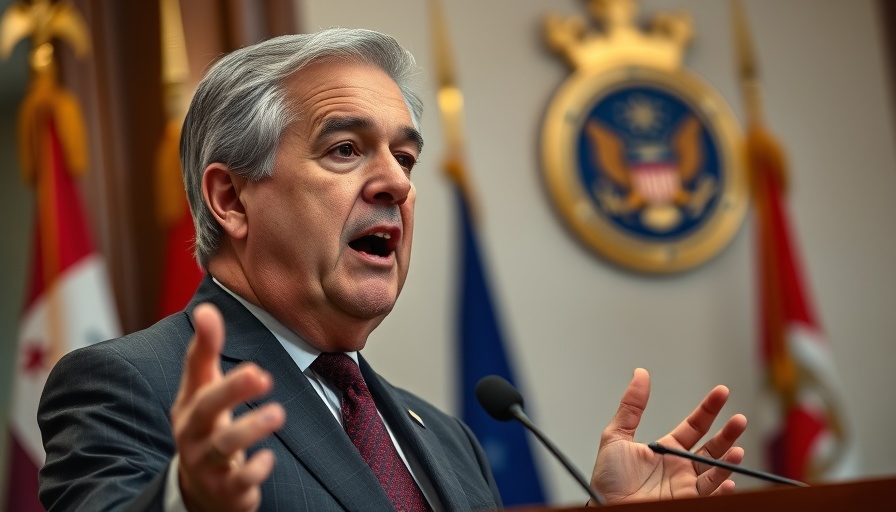
Fluoride Debate Heats Up: Health Implications for Children
The ongoing discussion surrounding fluoride in public water supplies recently took a striking turn when Robert F. Kennedy Jr., the newly appointed Health Secretary, acknowledged that eliminating fluoride could lead to a noticeable uptick in cavities among children. During a Fox News interview with Oklahoma Governor Kevin Stitt, he stated, "You’re gonna see probably slightly more cavities," setting off a firestorm of responses from health professionals and the public alike.
Understanding Fluoride's Role in Dental Health
Fluoride, often dubbed "nature's cavity fighter," is a mineral that plays a critical role in preventing tooth decay. Its presence in water has been credited with significantly reducing cavity rates across America since its introduction in the mid-20th century. However, Kennedy’s remarks raised eyebrows and sparked a broader conversation about the balance between medical freedom, parental choice, and public health.
Public Health Perspectives and Reactions
Kennedy's statements were quickly met with skepticism on social media, with many users emphasizing his lack of a medical background. Critics argued that the science surrounding fluoride is robust, pointing to research indicating its safety and efficacy in reducing cavities. Some noted that while Kennedy suggested a slight increase in cavities could occur, evidence from European countries that have restricted fluoride did not reflect such dire consequences.
The Financial Implications of Dental Care
Healthcare discussions surrounding fluoride often touch on income disparities. Access to preventive dental care varies significantly, especially among lower-income families. Critics of Kennedy's advocacy for fluoride removal express concern that without the mineral in water, many children may miss out on essential dental care—all while dental treatment costs soar. Recommendations for parents involve increased dental visits and awareness, which may not always be feasible.
A Global View: Europe and Fluoride Use
Interestingly, Kennedy mentioned that countries in Europe where fluoride has been banned didn’t see a widespread increase in cavities, a claim that has sparked further debate. For example, studies from Germany and Sweden show mixed results regarding dental health in the absence of systemic fluoride. These findings suggest that the relationship between fluoride use and oral health is complex and influenced by various factors, including education, overall diet, and access to dental care.
Cultural and Societal Impact on Health Policies
This fluoride debate significantly reflects how health policies are shaped by societal beliefs about personal freedom and community responsibility. Advocates for medical freedom argue that parents should have the ultimate say in their children's health, whereas public health officials stress the importance of community programs that have historically protected against dental decay.
As the conversation continues, it raises fundamental questions on how society navigates the balance between individual rights and collective health imperatives. As Kennedy's policies unfold, parents and health professionals alike will need to respond with informed decisions, considering not only the impact on cavities but also broader health outcomes.
The implications of these policies go beyond smiles; they reach into the very fabric of how public health is managed in this country. Keeping abreast of both sides of the argument is necessary for making informed health choices.
 Add Row
Add Row  Add
Add 




 Add Row
Add Row  Add
Add 

Write A Comment